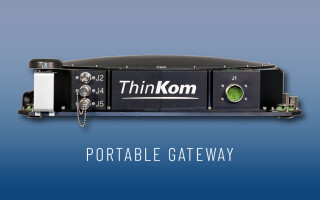U.S. Navy enters CRADA with Indiana University with focus on security in UPS
NewsMay 03, 2017

BLOOMINGTON, Ind. Indiana University and Naval Surface Warfare Center, Crane Division (NSWC Crane) representatives signed a new cooperative research and development agreement (CRADA) where the focus will be Uninterruptible Power Supply (UPS) and the security of devices using UPS.
The goal of the research between NSWC Crane and Indiana University's School of Informatics and Computing is to provide an analysis of the cyber-domain risks associated with UPSs. Modern UPSs have a number of interfaces to provide management information to either a host computer via USB or a central server via Ethernet. Such management interfaces provide potential opportunities for attackers to disrupt functionality of the UPS or gain information about the systems connected.
Through this research effort, the hope is to be able to generate publishable scientific results on the state of UPS security and the threats associated.
"NSWC Crane is excited to utilize the unique multi-domain information security expertise in Indiana University's School of Informatics and Computing to study embedded system security, and more specifically, UPSs," says Dr. Nathan Husted, NSWC Crane's Principal Investigator. "UPS devices are ubiquitous in data centers everywhere and are used in a variety of different cases where computational systems must be kept running at all times. We think the results from IU's research will help increase the cybersecurity of the Navy as well as the warfighter."
"UPSs are common pieces of infrastructure in many machine rooms, and we suspect that they will become more widely distributed in consumer settings in the coming years due to the proliferation of Internet of Things (IoT) devices," explains Dr. Steven Myers, Indiana University's Principal Investigator. "We are partnering with Crane to look at the security profile of many of these devices, threat model possible attacks, and if found, we'll consider appropriate defenses. Because these have high energy densities, connections to power supplies and computers, and direct or indirect Internet connections, there is at least the theoretical possibility of abuse by malicious actors."
Indiana University PhD student Gianpaolo Russo will be responsible for much of the research associated with this agreement.
Read more on cybersecurity:
'Hack the Air Force' broadens participation to include partner nations
Lockheed Martin selects Guartime Federal to provide cyber technology
Harris Corp. wins cryptographic and information assurance contract





